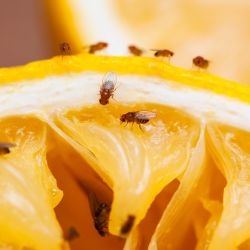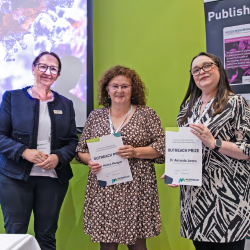Academy of Medical Sciences funds new research from emerging scientific leaders
Two biomedical sciences researchers from Northumbria University have been awarded grants to…
International
Northumbria’s global footprint touches every continent across the world, through our global partnerships across 17 institutions in 10 countries, to our 277,000 strong alumni community and 150 recruitment partners – we prepare our students for the challenges of tomorrow. Discover more about how to join Northumbria’s global family or our partnerships.
View our Global FootprintBusiness
The world is changing faster than ever before. The future is there to be won by organisations who find ways to turn today's possibilities into tomorrows competitive edge. In a connected world, collaboration can be the key to success.
More on our Business ServicesResearch
Northumbria is a research-rich, business-focused, professional university with a global reputation for academic quality. We conduct ground-breaking research that is responsive to the science & technology, health & well being, economic and social and arts & cultural needs for the communities
Discover more about our ResearchAlumni
Northumbria University is renowned for the calibre of its business-ready graduates. Our alumni network has over 246,000 graduates based in 178 countries worldwide in a range of sectors, our alumni are making a real impact on the world.
Our AlumniAre meat substitutes healthy?
Daniel Commane 29/03/23
Animal welfare and ethics aside, experts agree that reducing meat intake may be better for our health and better for the planet. The fundamental question for nutrition savvy consumers is what should we eat instead? According to recent Northumbria PhD graduate, Dominic Farsi “That depends! As with any food group, plant-based foods can be nutritious, or they can be full of salt, refined sugars, and saturated fats. These products certainly aren’t meat, unless fortified they may be low in iron and vitamin B12” This isn’t that surprising, vegetarians have long been instructed to supplement or seek alternative sources of these key nutrients. Importantly, plant-based meat substitutes can have their own distinct nutritional value. Many of them are really good sources of fibre. In fact, Dominic noted that “consumption of some of these foods would take most of us a long way towards reaching the recommendations for fibre intake”.
Hitting fibre guidelines is key to decreasing your risk of weight gain, diabetes, cardiovascular disease, hypertension, and cancer, and most of us fall well short. But a simple food swap, like opting for Quorn over beef burgers lowers cholesterol, may improve metabolic health, and decreases exposure to nasty cancer-causing chemicals in the gut. Furthermore, it may be just as effective as meat at building muscle.
Plant-based meat substitutes allow consumers to decrease meat consumption without drastically changing their approach to food. therefore, as a food group, meat substitutes are here to stay.
For consumers, the take home message is that these can be healthy food choices as part of a balanced diet. Aim for products higher in fibre and protein and low in salt, saturated fat and added sugar.
How to eat: For the perfect taco, use Quorn mince, heat in oil with onion, garlic, peppers, chopped tomatoes, puree, cumin, chilli and coriander. Garnish with salad and Greek yogurt in taco shells.

Two biomedical sciences researchers from Northumbria University have been awarded grants to…

The Spring 2025 edition of Northumbria University’s newspaper is available to collect on campus…

Scientists have discovered that flies can demonstrate play-like behaviour – the first time…

Researchers from Northumbria University are helping to celebrate 200 years since the opening…

Northumbria University is one of four regional universities to receive funding to support the…

Northumbria academic, Dr Jill McKay, Associate Professor of Molecular Epidemiology in the department…

A team led by researchers from Northumbria University have been awarded the 2024 Outreach Prize…

Following its part in the successful delivery of a £4.7 million, three-year government funded…
Back to top